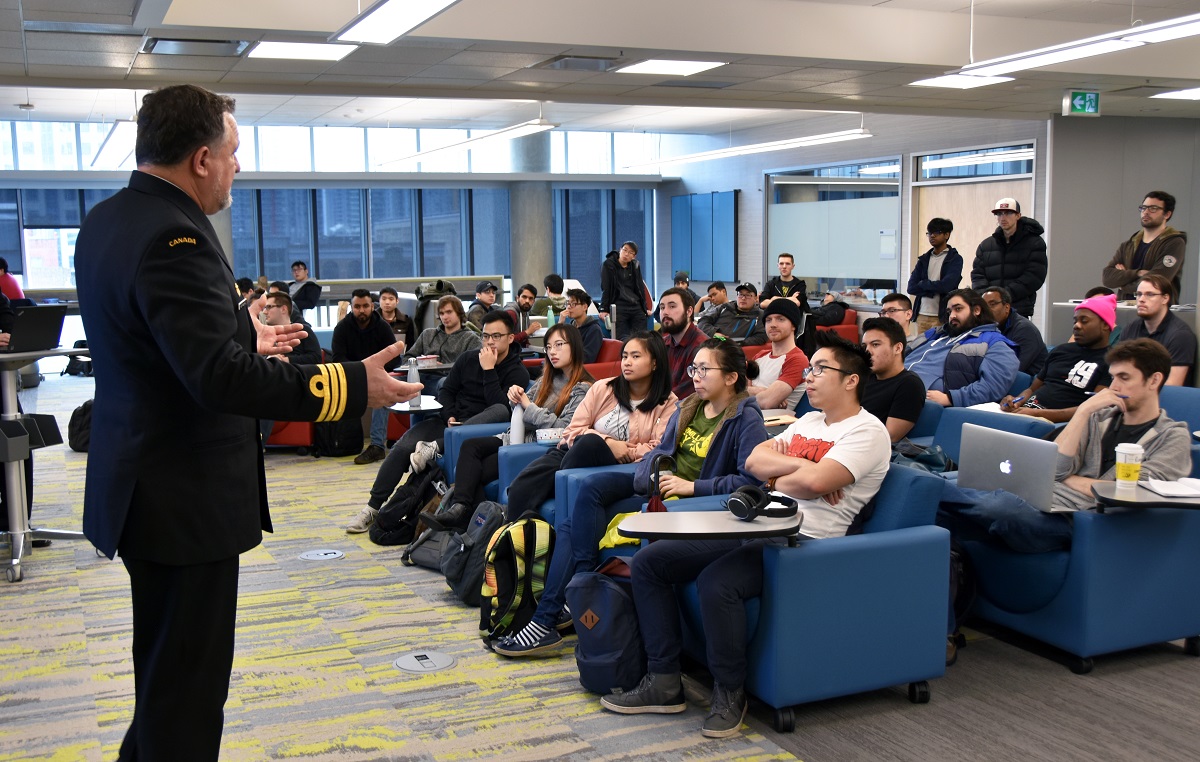Commander Kristof Langland, of the Royal Canadian Navy, visited the BCIT Downtown Campus TEC (Technology Education and Collaboration) Hub this week to discuss the technical roles and technology tools present in a modern navy environment.
Computing and Cybersecurity students and faculty learned about Commander Langland’s career path, which started as a programmer in Vancouver in the 1980s. After an extensive naval career on both coasts, he is now Chief Information Officer, within the Maritime Forces Pacific, that includes all of the West Coast.
An ever-changing career
Duties range from humanitarian assistance and coastal fire-fighting, to full combat operations. He pointed out that a naval career offers a significant range of experiences, emphasized the challenges and benefits of a military career, and described different routes to get there.
Commander Langland spends a lot of time working in international cyber security and cryptography. He delved into the range of cyber intelligence threats and opportunities, inter-agency cooperation, data standards, and the importance of system baselining. The networking and data communication skills currently in such high demand in industry are also critical in the armed forces.
Students inquired about the ‘Internet of Things’, differentiating IT security from cyber security, recent media stories, and even requested inside information about Area 51!
Takeaways
“One of the most interesting takeaways from Commander Langland’s presentation was the scale, breadth, and depth of the Royal Canadian Navy’s cyber security responsibilities,” explained Computer Systems Technology Program Head Trevor Lord.
“They’re on the cutting edge of technology, dealing with some of the most pressing IT issues of our day, with a global scope, and with security and integration challenges that most IT professional only read about. It’s an incredible set of tasks, and one that could be very exciting for students and graduates interested in IT and cyber security.”
While visits from high-level officers have not been very common in the past, Commander Langland explained it’s part of Canada’s new Defence Policy – “Strong. Secure. Engaged.” – and efforts to reach out to, and attract, Canada’s best and brightest talent.
Photo credit: Dan Thomas, NDPAO Pacific

Putting one’s tech skills to work to protect ourselves, our livelihoods, our families, and secure the well being of our country. An opportunity to give and get with integrity!